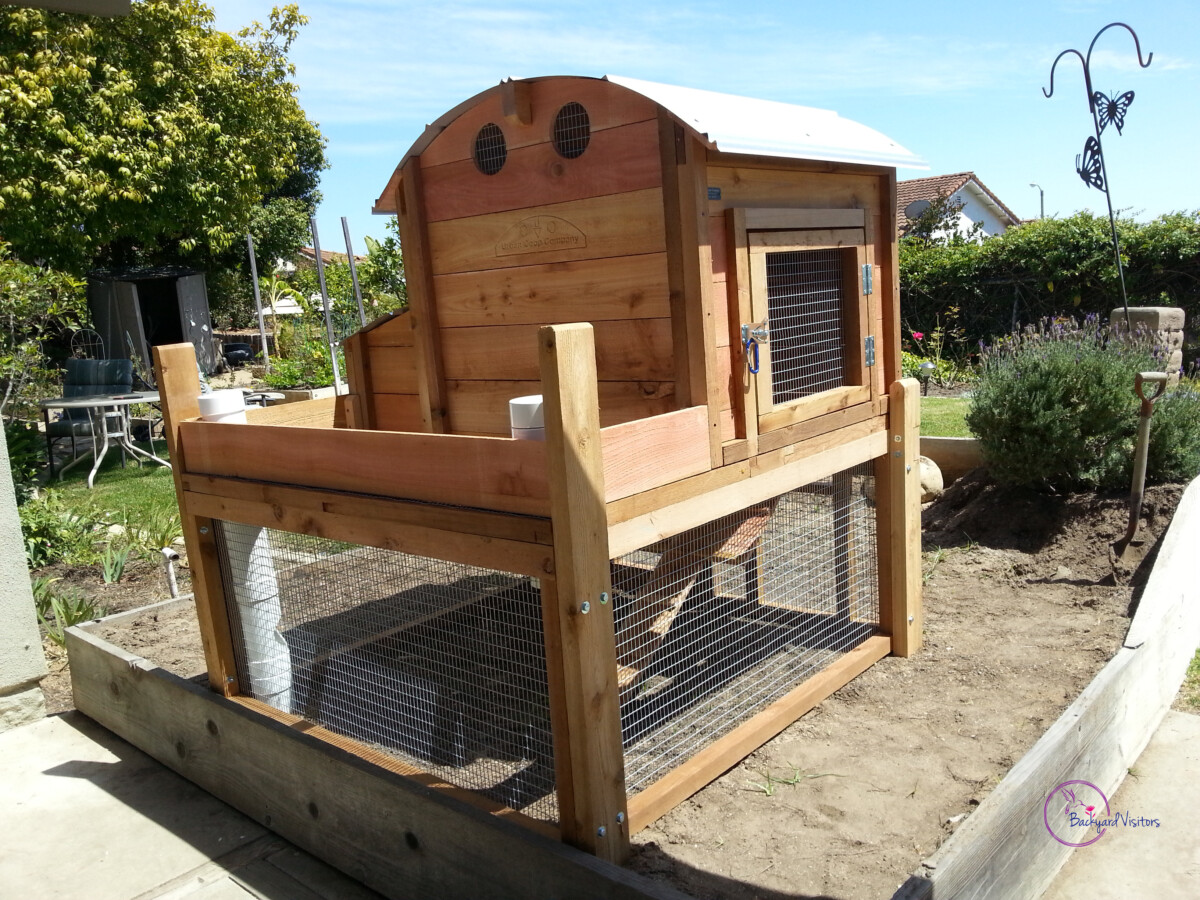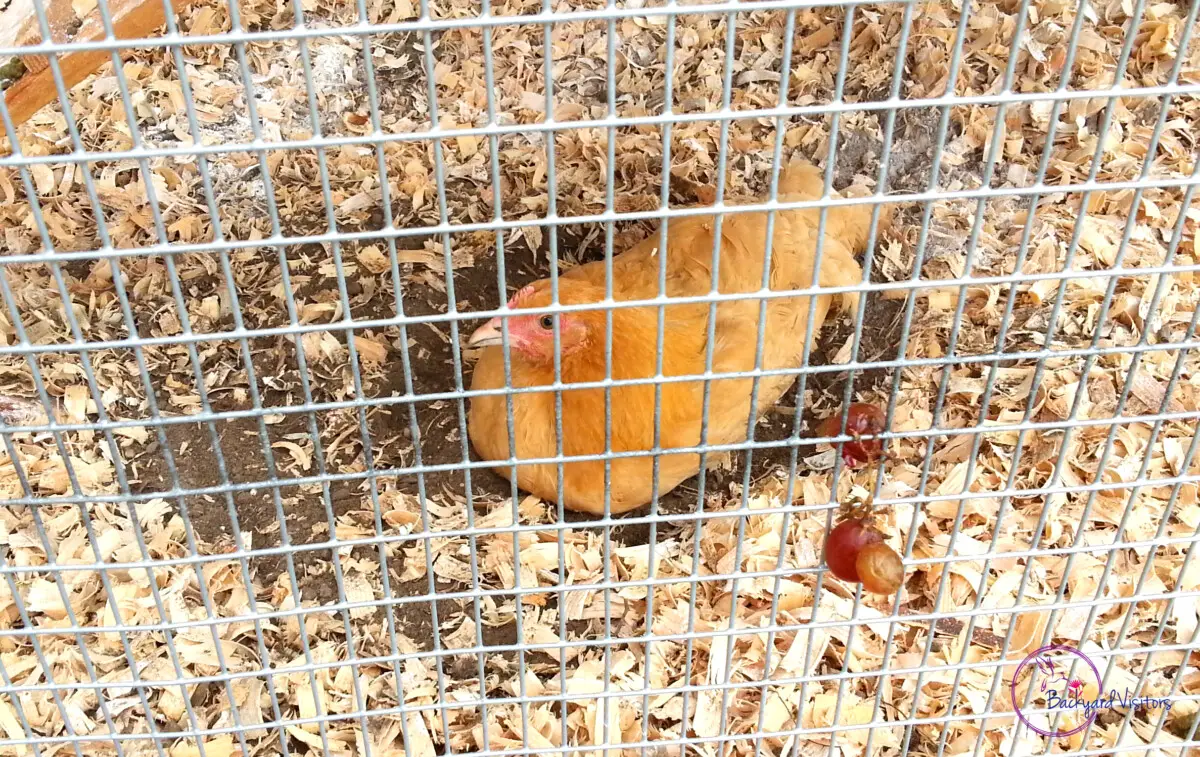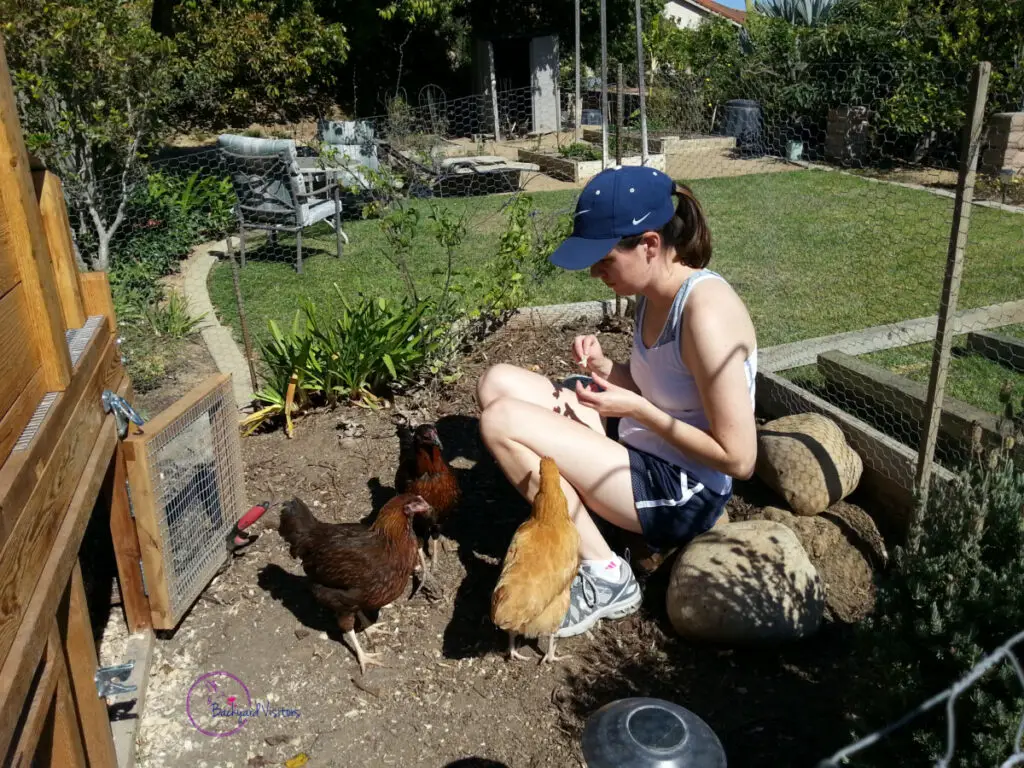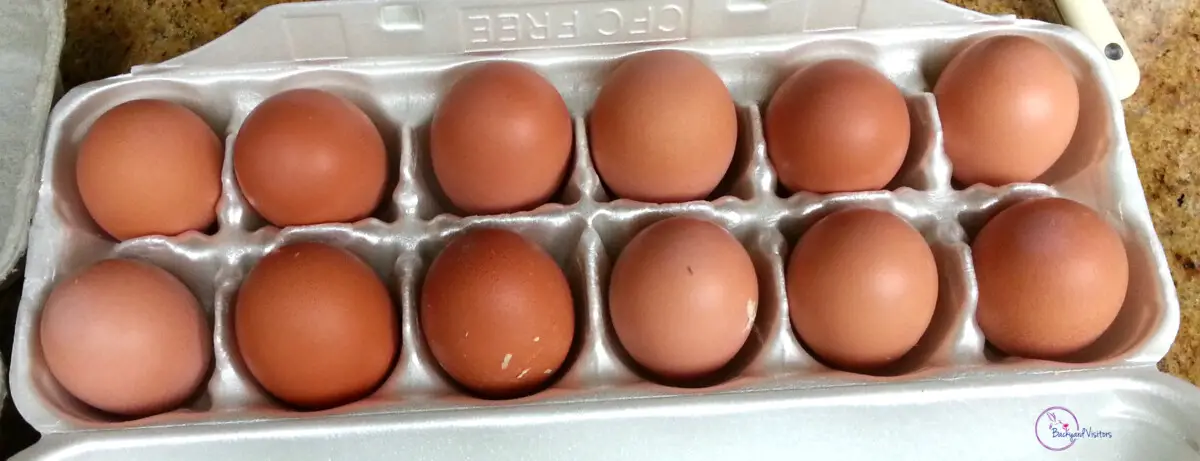This post contains affiliate links.
Welcome to your guide on deciding if backyard chickens are a good fit for you and selecting the best breeds for raising! As a seasoned backyard chicken owner, I know firsthand the joys and rewards these delightful creatures bring into my life. Whether you’re dreaming of fresh eggs, pest control, or just some feathery friends to brighten your garden, this article will help to navigate the ins and outs of choosing the perfect chickens for your backyard.
Decide if Raising Backyard Chickens is Right for You
When you’re looking to decide if backyard chickens are right for you, there are several important factors to consider. Raising chickens is a rewarding hobby that provides fresh eggs and also brings joy to your daily routine. However, it’s crucial to make the right decision based on your personal situation, lifestyle, and goals. Let’s delve into what you need to think about when deciding if you should venture into the world of backyard poultry.
First and foremost, consider whether you have the space. Chickens need a decent amount of room to roam and forage, so having a backyard or garden suited to their needs is essential. You’ll need to ensure you have enough space to set up a proper chicken coop and provide a safe environment for your new feathered friends. If you live in an urban area with limited space, you might need to rethink whether raising backyard chickens is right for you.

Time is another critical factor. Raising chickens requires daily attention and care. From feeding and watering to cleaning the coop and collecting eggs, you’ll need to dedicate a portion of your day to ensure your chickens’ well-being. If you have a busy lifestyle, it’s important to consider whether you can find the time to commit to raising chickens. If you’re unsure, it may not be the right decision for you at this time.
Next, think about the local regulations regarding backyard poultry. Some areas have strict rules about the number of chickens you can keep, the type of housing they require, and noise control. Make sure to check with your local authorities before deciding to keep chickens in your backyard. This step will help you avoid any issues down the line and ensure you’re fully prepared to comply with local ordinances.
Another aspect to consider is the weather in your region. Chickens are quite hardy, but extreme temperatures pose significant challenges. If you live in an area with harsh winters or scorching summers, you’ll need to be prepared to create a suitable environment for your chickens to thrive. That may involve additional heating in the winter or ample shading and ventilation in the summer.
On the brighter side, raising chickens is a fantastic way to teach kids about responsibility and the lifecycle of poultry. If you’re considering a pet chicken, it’s a good idea to get your family involved in the decision. Discuss the responsibilities and ensure everyone is on board with contributing to the care of your feathered friends.
Lastly, think about your primary reason for keeping backyard chickens. Whether you’re interested in fresh eggs, pest control, or just the pleasure of their company, understanding your motivation will help you make the right decision. If you’re passionate about sustainable living and enjoy gardening, chickens are a great addition to your backyard ecosystem as they provide natural fertilizer and help control garden pests.
Read my other related articles:
- The Basics of Backyard Chicken Keeping: What You Need to Know
- Understanding Local Regulations for Keeping Chickens
- The Initial Costs and Setup for a Backyard Chicken Coop
- Daily and Weekly Care Routines for Healthy Backyard Chickens
- What to Expect from Your Flock Of Backyard Chickens
- Common Myths About Keeping Chickens Debunked
- How Chickens Contribute to a Balanced Ecosystem at Home
Choosing the Best Chickens for Eggs
When it comes to choosing the best chicken breeds for egg production, it is both an exciting and overwhelming task. With so many different breeds it’s important to understand which ones will suit your needs best. Some chicken breeds are renowned for their egg-laying capabilities, while others are more versatile as dual-purpose birds, providing both meat and eggs. Let’s dive into the world of hens and discover the best choices for achieving a steady supply of fresh eggs.
The Leghorn is a well-known superstar of egg production. Leghorns are top-tier layers and produce an impressive number of eggs annually. They’re hardy birds and lay around 280 to 320 eggs per year. If you’re looking for pure egg-laying power, Leghorns are at the top of your list of chickens. However, they are not the friendliest birds, so if you want a more docile companion, you might consider other breeds such as Buff Orpington.

Another excellent choice for prolific egg layers are Rhode Island Reds. These hens are known for their remarkable laying consistency and produce up to 250 to 300 eggs each year. They are also quite hardy and have a calm disposition, making them a good choice for beginner chicken owners. Additionally, Rhode Island Reds are dual-purpose chickens, meaning they can be raised for both meat and egg production.
Australorps are another fantastic breed to consider. Originally from Australia, these birds are famed for their high egg production, often laying between 250 to 300 eggs annually. Besides being prolific layers, Australorps are known for their friendly and calm nature. They’re great if you’re looking to have a flock that’s both productive and easy to handle.
Let’s not forget about the popular Plymouth Rocks. These hens are exceptional layers and produce up to 200 to 280 eggs a year. They’re dual-purpose birds, and they have a friendly demeanor, making them a popular choice among backyard chicken owners. Plymouth Rocks are quite hardy and adaptable as they do well in various climates and conditions.
If you have limited space, bantam hens might be the way to go. Breeds like the Bantam Orpingtons or Bantam Wyandottes may not lay as many eggs as full-sized hens, laying around 150 to 180 eggs annually, but they are smaller and require less space. Bantam hens are also known for their delightful personalities and are very kid-friendly.
Lastly, consider the dependable Sussex hens. Sussex chickens are dual-purpose birds and lay around 250 to 280 eggs per year. They have a calm and friendly nature, making them a joy to have in your backyard. Sussex hens are also relatively hardy and adapt to different environments, which adds to their versatility.
Choosing the best chickens for eggs largely depends on your specific needs and the characteristics you prioritize in your flock. Whether you’re aiming for high egg production or prefer birds with a friendly demeanor, there’s a chicken breed out there that fits the bill perfectly.
Top 11 Best Chickens For Egg Laying
- Leghorn – 280 to 320 eggs per year
- Rhode Island Red – 250 to 300 eggs per year
- Australorp – 250 to 300 eggs per year
- Sussex – 250 to 280 eggs per year
- Plymouth Rock – 200 to 280 eggs per year
- Ancona – 220 to 280 eggs per year
- Golden Comet – 250 to 300 eggs per year
- Buff Orpington – 200 to 280 eggs per year
- Barnevelder – 180 to 220 eggs per year
- Brahma – 150 to 200 eggs per year
- Welsummer – 160 to 250 eggs per year
Setting Up Your Chicken Coop: What You Need to Know
Setting up your backyard chicken coop is one of the most important steps before you bring home your new feathered friends. A well-planned coop will keep your chickens happy and healthy, while also making things easier for you. Here is what you need to know to get started.
First and foremost, the location of your chicken coop is crucial. You’ll want to pick a site that gets a good amount of sunlight but also provides some shade. This balance helps keep your chickens comfortable year-round. Also, consider the proximity to your house or garden hose for easy cleaning and maintenance. If you’re in the city, check local regulations to ensure you’re compliant with city ordinances regarding the keeping of chickens. Some cities limit the number of poultry you can have, so be sure to read up on your specific local rules.
Your chicken coop should offer enough space for your flock. A general guideline is to have at least 5 square feet of space per chicken inside the coop and 10 square feet per chicken in the chicken run. If you have 5 chickens, a coop with 25 square feet of space inside and a run with 50 square feet is ideal. Don’t overcrowd the coop as it leads to stress and illness among your chickens.
Ventilation is another key factor in designing your coop. Proper ventilation helps to reduce moisture, remove ammonia, and keep your flock cool in the summer. You can achieve this by installing windows or vents, but make sure they’re predator-proof. Speaking of predators, a sturdy and secure construction is vital. Predators such as raccoons, foxes, and even neighborhood dogs can pose a threat, so use strong materials and hardware cloth to reinforce your coop and run.

My chicken coop is also placed on a concrete slab to prevent any predators from digging under the coop to access my chickens. The coop is protected with 16 gauge galvanized hardware cloth to prevent predators from attempting to claw or chew through the wire. The doors are locked at night using a carabiner that is possum proof. The ladder inside the chicken coop under the roosting bars is lifted with the pull of a rope from the outside and secures the chickens safely for the night.
When you’re ready to buy materials for your coop, make a list of everything you’ll need. This may include wood, nails, a hammer, roofing material, and hardware cloth. For those new to building, there are plenty of online resources and articles that offer step-by-step plans and tips. Reading these will save you time and prevent costly mistakes. Extensions or modifications to your coop can always be done later as your flock grows or your needs change.
For those that do not have the time or are less handy with building, consider a pre-fabricated coop. For my backyard situation, my compactable pre-fabricated chicken coop helped me save space in my backyard, but one drawback is that it has a small, low-to-the-ground human access area that makes it difficult for someone to clean out the coop. To make cleaning the coop much easier, I would have chosen a walk-in coop design with more room over a compact design.
Besides the coop itself, don’t forget about the accessories that will make life easier for both you and your chickens. Consider purchasing feeders and waterers that hold enough food and water for several days. Nesting boxes should be provided for laying hens. The general rule of thumb is to provide at least one nesting box for every three to five hens.
Keep the nesting boxes clean and filled with fresh bedding to encourage your chickens to lay their eggs there.
Lastly, don’t forget the overall upkeep and maintenance of your chicken coop and run. Regular cleaning is essential to prevent the buildup of waste and the spread of disease. Extension posts help if you need to expand your chicken run or coop in the future. Most importantly, always keep an eye on your flock’s health and well-being, and seek advice from local animal extension services or experienced chicken owners if you run into any issues.
Raising Chicks: A Guide for Beginners
Thinking about raising chicks in your backyard? It’s an exciting, rewarding and dedicating experience. When starting with chicks, especially if you’re a beginner, you want to make sure you’re well-prepared to care for these delicate little animals.
Choose the right breed as there are many breeds of chickens, each with its unique characteristics. If you plan to enjoy fresh organic eggs from your backyard, make sure to choose breeds known for good egg production. Breeds such as Leghorns, Rhode Island Reds, and Australorps are excellent layers, providing a steady supply of fresh eggs.
Chicks need a warm, safe environment to grow. When they first arrive, you’ll need a brooder, which can be as simple as a large box. Line it with clean bedding, and make sure it has adequate heat from a heat lamp. Chicks need a temperature of around 95 degrees Fahrenheit for the first week of their life, and gradually lower the temperature by 5 degrees each week as they grow. It’s important to watch their behavior; if chicks are huddled together under the lamp, they may be too cold. If they’re spread out or panting, they may be too hot.
Providing the right food is crucial when raising chicks. Start with a high-quality chick starter feed, which offers the perfect balance of nutrients for their growth. It’s also vital to keep their water supply clean and fresh, as chicks can easily get dehydrated.
Make sure your chicks have constant access to food and water, and clean their living space regularly. As they grow, you’ll begin to notice different personalities emerging. Chickens are surprisingly sociable animals, and you’ll see that some may even become friendly enough to be considered a pet chicken.
With time, your chicks will grow into healthy hens. Raising backyard chickens offers the opportunity to teach children about the responsibilities of animal care. It’s also a great way to enjoy the benefits of poultry and fresh produce right at home. Whether you’re raising chicks for eggs, as pets, or simply out of interest in poultry, there’s no denying the satisfaction that comes from nurturing your flock. With patience and dedication, you’ll find that your backyard chickens will bring joy and productivity to your home life.
As you’re raising chicks, it’s crucial to regularly monitor their development. You may need to make adjustments to their diet and environment based on their growth stages. Keeping a close eye on their health and behavior will ensure they grow into robust chickens. There’s a learning curve, but it’s well worth the time and effort. Soon, you’ll be enjoying the many benefits that come with raising backyard chickens, from fresh eggs to the simple pleasure of watching your birds thrive.
Top 10 Essential Items For Raising Chicks
- Brooder Box
- Heat Lamp
- Thermometer
- Chick Starter Feed
- Waterer
- Bedding Material
- Feeder
- Grit
- Chick Supplements
- First Aid Kit
Maintaining a Healthy Flock
Maintaining a healthy flock is vital for anyone diving into the rewarding world of backyard chicken keeping. To ensure your flock thrives, paying attention to nutrition is critical. Good quality chicken feed, rich in essential nutrients, is the foundation of maintaining a healthy flock. You’ll need to choose the right feed depending on the age and purpose of your chickens—whether they’re young chicks, laying hens, or adult birds. For laying hens, layer feed enriched with calcium is crucial for strong eggshells, whether they’re brown, blue, or white.
Of course, predator awareness is another key element when maintaining a healthy flock. Everything from raccoons to hawks is considered a predator to your birds. Ensuring your chicken coop is predator-proof will save you headaches down the line. Reinforce your coop and run with hardware cloth, and frequently inspect for any signs of attempted breaches. Also, securing the doors and having a good locking system can deter nighttime predators.

Another important aspect of maintaining a healthy flock is cleanliness. A clean environment goes a long way in preventing diseases among your birds. Regularly remove soiled bedding and replace it with fresh, clean material. This is especially important in the nesting boxes, where hens lay their precious eggs. Besides keeping the coop clean, ensuring your chickens have access to fresh, clean water and rotating their grazing areas can contribute massively to their health and happiness.
Ventilation is another crucial factor. Proper airflow will help keep moisture levels down, reducing the risk of respiratory issues and mold growth in the coop. Installing windows or vents that are securely covered with hardware cloth will maintain good ventilation while keeping predators out. During colder months, a well-insulated coop will protect your birds from harsh weather without compromising on airflow.
Chickens are social creatures. They enjoy interacting with each other and even with their human caretakers. A good amount of space and safe areas for scratching and dust-bathing are essential for maintaining a healthy flock. Enriching their environment with perches, swings, and varying terrain will keep them mentally stimulated and less prone to stress.

Finally, a proactive approach to health care is vital when maintaining a healthy flock. Regular health checks on each pet chicken help you catch any potential issues early. Keep an eye out for symptoms such as lethargy, loss of appetite, or abnormal droppings, and consult a vet specializing in poultry if anything seems off. Vaccinations and parasite control should also form part of your regular maintenance routine to ensure your backyard beauties continue laying those lovely eggs.
Enjoying Fresh Eggs from Your Hens
One of the most delightful aspects of raising backyard chickens is the joy of enjoying fresh eggs from your hens each morning. There’s truly nothing like cracking open a fresh egg and knowing exactly where it came from and how it was produced. When you commit to raising chickens, you’re not just getting into the enchanting world of poultry, but you’re also embracing the opportunity to produce your very own organic eggs. Whether you’re in it for the taste, the health benefits, or the sheer satisfaction of self-sufficiency, having hens that lay fresh eggs is immensely rewarding.
The journey to enjoying fresh eggs begins with selecting the right breeds of hens. Some chickens are bred specifically for egg production. These egg-laying champions, such as the Leghorn, Rhode Island Red, and Sussex, are known for their high egg output and resilience.

Once your backyard is set up for your flock then bask in the excitement of collecting fresh eggs daily. If you’re keen on organic living, raising your own chickens means you have control over their diet and living conditions, ensuring that your eggs are truly organic. Plus, the rich, full flavor of fresh eggs can’t be matched by store-bought varieties.

Keeping backyard chickens about egg production and forming a bond with your flock. Chickens are surprisingly friendly and become a charming addition to any backyard. Watching them play, forage, and lay eggs creates a peaceful and rewarding experience. It’s worth noting that happy and well-cared-for hens tend to be the most consistent layers, producing the freshest eggs. A well-maintained coop, adequate nutrition, and a healthy environment will ensure that your hens stay productive and content.
Another benefit of having backyard chickens is the educational value, especially if you have children. Kids learn about responsibility and nature through the care of hens and enjoy the process of collecting fresh eggs. This hands-on experience with poultry is both fun and enlightening, sparking an interest in biology, sustainability, and farming. Moreover, the process of taking care of chickens and enjoying the fruits of your labor, in the form of fresh organic eggs, is fulfilling. It brings an added layer of sustainability to your household, reducing your reliance on commercial egg producers.
The convenience of having fresh eggs on demand is another perk of raising backyard chickens. No more last-minute runs to the store or worrying about egg recalls. You’re in charge of your egg supply, ensuring they’re fresh and safe to eat. Additionally, chickens produce eggs year-round, though the frequency can dip slightly during the colder months. Still, with proper care and the right breed selection, your hens can produce a steady supply of eggs even during winter with artificial lighting. This means you can enjoy fresh eggs from your hens throughout the year.
Personally, I do not add artificial lighting to my coop in the winter as I feel it is more healthy to have decreased egg production and rest time for my chickens during this time.
Raising backyard chickens for egg production offers several benefits. From the enjoyment of fresh, organic eggs to the joy and educational value of caring for hens, the experience is rewarding. By choosing the right breeds and maintaining a healthy, happy flock, you’ll find that enjoying fresh eggs from your hens is one of the most satisfying aspects of backyard chicken ownership.
Check out my other posts on Backyard Chickens
Frequently Asked Questions
Q: How much space do I need to keep backyard chickens?
A: Chickens require adequate space to roam and forage. You will need at least 4 square feet per chicken inside the coop and 10 square feet per chicken in the run. Ensuring they have enough space helps keep them healthy and stress-free.
Q: How much time do I need to dedicate to raising chickens?
A: Raising chickens requires daily care, including feeding, watering, cleaning the coop, and collecting eggs. Depending on your flock size, you might need to spend around 15 to 30 minutes per day. Consistent care is crucial for their well-being.
Q: What are some of the best chicken breeds for egg production?
A: For reliable egg production, consider breeds such as Leghorns, which can lay 280-320 eggs per year, Rhode Island Reds with around 200-300 eggs, and Australorps known for their friendly nature and 250-300 eggs annually. These breeds are hard at laying and generally easy to care for.
Q: What should I consider regarding local regulations before keeping chickens?
A: Check your local ordinances to ensure you comply with regulations about the number of chickens allowed, required coop specifications, noise control, and cleanliness. Some areas have specific rules, therefore it is essential to be aware to avoid any legal issues.
Q: How can I ensure my chickens are safe from predators?
A: To protect your chickens from predators such as raccoons, foxes, and hawks, use strong materials for your coop and secure it with hardware cloth. Regularly inspect the coop for any signs of attempted breaches and secure all doors and exits to keep your flock safe.
Q: What is the importance of proper ventilation in a chicken coop?
A: Proper ventilation helps reduce moisture and ammonia levels, which cause respiratory issues in chickens. It also keeps the flock cool in summer and prevents mold growth. Install windows or vents covered with hardware cloth for good airflow while keeping predators out.
Q: What kind of feed should I provide my chickens?
A: Different stages of chickens require different types of feed. Young chicks need starter feed, while laying hens require layer feed enriched with calcium for strong eggshells. Always provide fresh, clean water and consider additional grit and oyster shells for digestion and calcium boost.
Q: How do I keep my chicken coop and run clean?
A: Regularly clean the coop and run to prevent waste buildup and reduce the spread of diseases. Replace soiled bedding with fresh material and ensure nesting boxes are clean. Clean feeders and waterers regularly to maintain a healthy environment.
Q: What are the benefits of raising backyard chickens?
A: Raising backyard chickens provides fresh, organic eggs, offers education and responsibility lessons for kids, and enhances your backyard’s sustainability. Chickens also provide natural fertilizer and pest control, making them a valuable addition to any garden.
Q: How do I start raising baby chicks?
A: To start with chicks, create a brooder with clean bedding and a heat lamp, maintaining around 95°F for the first week and gradually reducing the temperature. Provide a starter feed and clean water. Monitor their health and adjust their environment as they grow.
Welcome to the rewarding world of backyard chickens! With the right preparation and care, you’ll enjoy fresh eggs and the joy these feathered friends bring to your life.
Happy Backyard Chicken Raising!
Backyard Visitors participates in affiliate programs which compensate us for referring traffic.

